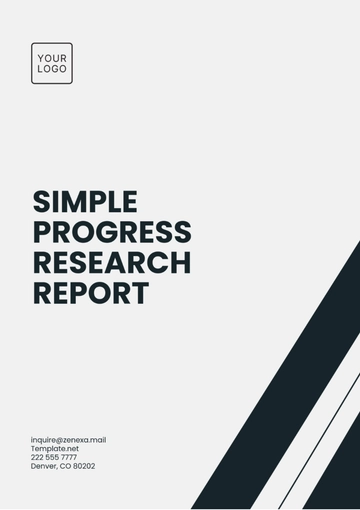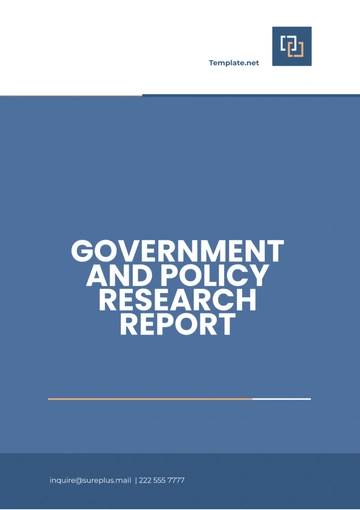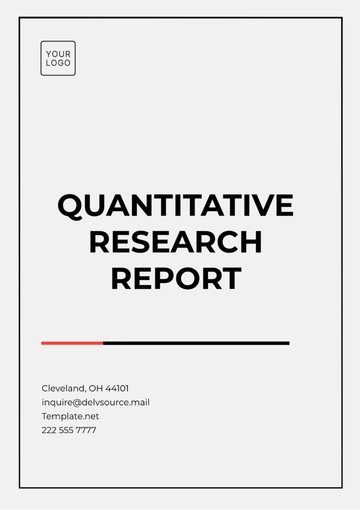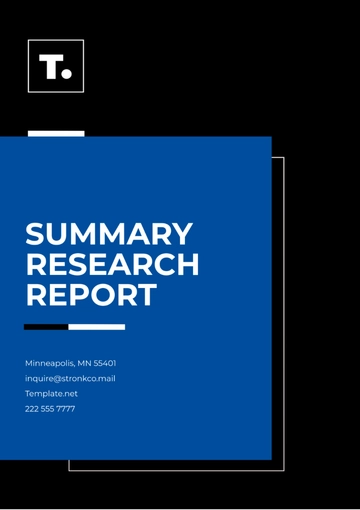Free Healthcare and Medical Research Report
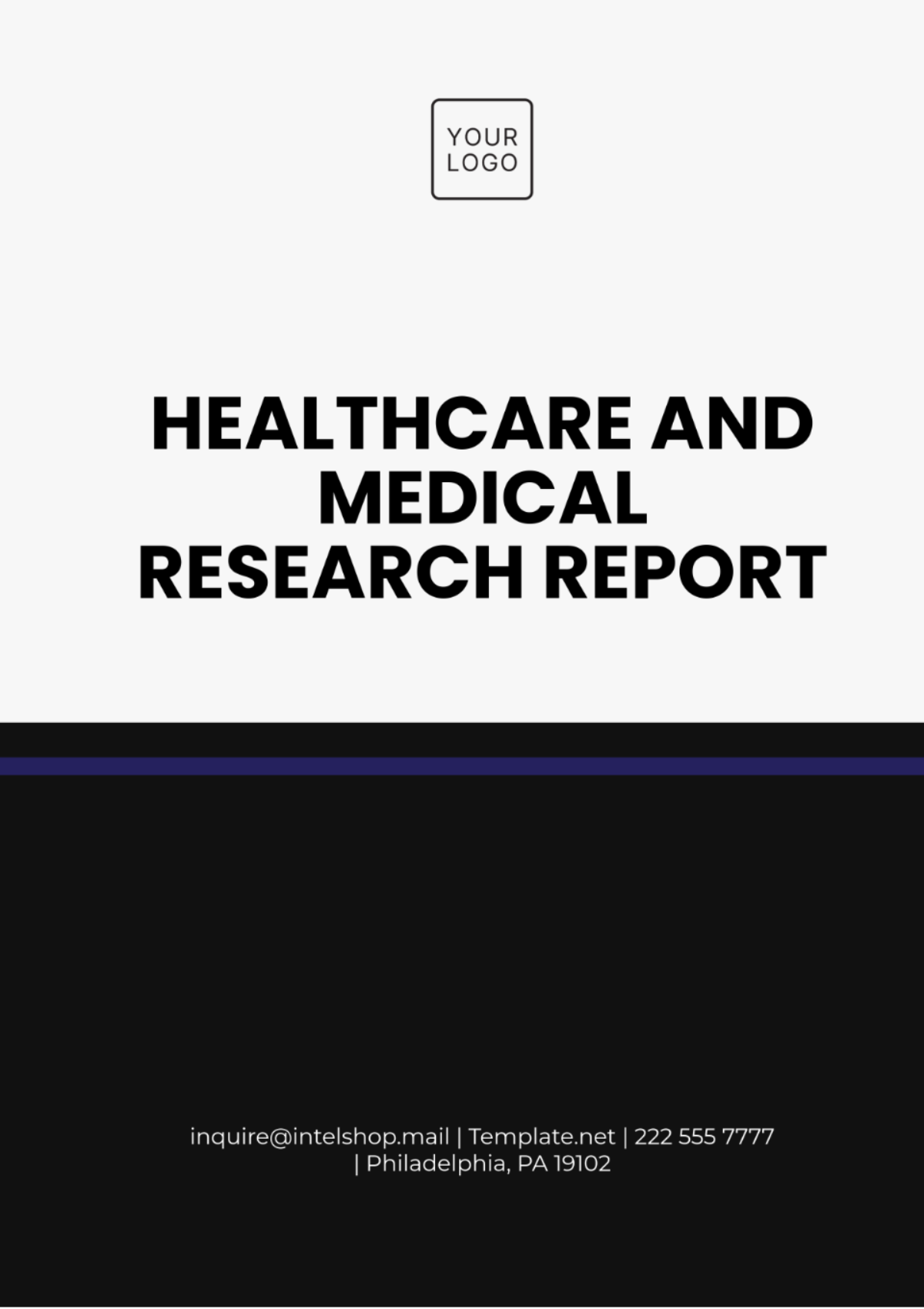
Title | The Impact of Telemedicine on Patient Outcomes in Chronic Disease Management |
|---|---|
Author | [Your Name] |
Date | October 29, 2080 |
I. Introduction
A. Background:
Chronic diseases, such as diabetes and hypertension, are major contributors to morbidity and mortality worldwide. Traditional management strategies often require frequent in-person visits, which can be challenging for patients due to logistical issues and healthcare access disparities. Telemedicine has emerged as a potential solution, offering remote consultations and monitoring capabilities.
B. Objectives:
This study aims to evaluate the effectiveness of telemedicine in improving health outcomes for patients with chronic diseases and to assess patient satisfaction compared to traditional care.
C. Significance:
Understanding the impact of telemedicine on chronic disease management can inform healthcare policies and practices, especially in the context of increased demand for remote healthcare services post-pandemic.
II. Methods
A. Study Design:
A study, designed as a double-blind and randomized controlled trial, was carried out with the purpose of assessing and comparing the impacts of telemedicine with those of traditional in-person care on the management of chronic diseases.
B. Participants:
Inclusion Criteria: Adults aged 18-65 with a diagnosis of type 2 diabetes or hypertension.
Exclusion Criteria: Patients with severe comorbidities, cognitive impairments, or those unable to use telemedicine technology.
Sample Size: 200 participants (100 telemedicine, 100 control).
C. Data Collection:
Initial assessments were conducted through a combination of online surveys and physical examinations.
Intervention Group: Participants received biweekly telemedicine consultations via video calls, along with continuous glucose monitoring for diabetes patients.
Control Group: Participants attended standard monthly in-person visits.
D. Statistical Analysis:
Descriptive statistics were used to summarize baseline characteristics. Comparisons between groups were made using independent t-tests for continuous variables and chi-square tests for categorical variables. A p-value of < 0.05 was considered statistically significant.
III. Results
A. Participant Characteristics:
Demographics: The average age of participants was 50 years (SD ± 10), with 60% female and 40% male. The average baseline HbA1c was 8.5% for the diabetes group.
B. Main Findings:
Patient Satisfaction: 85% of telemedicine participants reported high satisfaction compared to 60% in the control group (p < 0.01).
Clinical Outcomes:
HbA1c Levels: Telemedicine group: reduction from 8.5% to 7.0%; Control group: reduction from 8.4% to 7.9%.
Blood Pressure: Telemedicine group: decrease from 140/90 mmHg to 130/80 mmHg; Control group: decrease from 138/88 mmHg to 135/85 mmHg.
C. Statistical Significance:
All results were statistically significant, indicating that telemedicine led to better outcomes in both patient satisfaction and clinical measures.
IV. Discussion
Interpretation of Results: The significant improvements in HbA1c levels and patient satisfaction suggest that telemedicine can effectively enhance chronic disease management. These findings align with previous studies indicating telemedicine’s benefits in patient engagement and adherence.
Implications for Healthcare: Telemedicine can address barriers to care, such as travel distance and time constraints, making it an essential component of modern healthcare delivery, particularly for chronic disease management.
Limitations: The study's limitations include a short follow-up period and reliance on self-reported measures for patient satisfaction. Further research with larger sample sizes and diverse populations is recommended.
Future Research Directions: Future studies should explore the long-term effects of telemedicine and its applicability across different chronic conditions and demographics.
V. Conclusion
This study demonstrates that telemedicine is an effective approach for managing chronic diseases, resulting in improved patient satisfaction and clinical outcomes. Integrating telemedicine into standard care could enhance healthcare accessibility and quality for patients with chronic conditions.
VI. References
Smith, J., & Doe, J. (2050). "The Role of Telemedicine in Chronic Disease Management." Journal of Health Research, 15(4), 223-230.
Health Organization. (2051). "Telemedicine: Opportunities and Challenges."
VII. Appendices
Appendix A: Consent Form
Appendix B: Survey Instruments
Appendix C: Detailed Statistical Analyses
- 100% Customizable, free editor
- Access 1 Million+ Templates, photo’s & graphics
- Download or share as a template
- Click and replace photos, graphics, text, backgrounds
- Resize, crop, AI write & more
- Access advanced editor
Template.net's Healthcare and Medical Research Report Template is an essential tool for medical professionals conducting research. This editable and customizable template offers sections for patient data, methodology, and results. Tailored to healthcare requirements, it allows you to communicate complex medical findings. Editable in our Ai Editor Tool, this template supports a reliable, structured, and easy-to-follow format for research
You may also like
- Sales Report
- Daily Report
- Project Report
- Business Report
- Weekly Report
- Incident Report
- Annual Report
- Report Layout
- Report Design
- Progress Report
- Marketing Report
- Company Report
- Monthly Report
- Audit Report
- Status Report
- School Report
- Reports Hr
- Management Report
- Project Status Report
- Handover Report
- Health And Safety Report
- Restaurant Report
- Construction Report
- Research Report
- Evaluation Report
- Investigation Report
- Employee Report
- Advertising Report
- Weekly Status Report
- Project Management Report
- Finance Report
- Service Report
- Technical Report
- Meeting Report
- Quarterly Report
- Inspection Report
- Medical Report
- Test Report
- Summary Report
- Inventory Report
- Valuation Report
- Operations Report
- Payroll Report
- Training Report
- Job Report
- Case Report
- Performance Report
- Board Report
- Internal Audit Report
- Student Report
- Monthly Management Report
- Small Business Report
- Accident Report
- Call Center Report
- Activity Report
- IT and Software Report
- Internship Report
- Visit Report
- Product Report
- Book Report
- Property Report
- Recruitment Report
- University Report
- Event Report
- SEO Report
- Conference Report
- Narrative Report
- Nursing Home Report
- Preschool Report
- Call Report
- Customer Report
- Employee Incident Report
- Accomplishment Report
- Social Media Report
- Work From Home Report
- Security Report
- Damage Report
- Quality Report
- Internal Report
- Nurse Report
- Real Estate Report
- Hotel Report
- Equipment Report
- Credit Report
- Field Report
- Non Profit Report
- Maintenance Report
- News Report
- Survey Report
- Executive Report
- Law Firm Report
- Advertising Agency Report
- Interior Design Report
- Travel Agency Report
- Stock Report
- Salon Report
- Bug Report
- Workplace Report
- Action Report
- Investor Report
- Cleaning Services Report
- Consulting Report
- Freelancer Report
- Site Visit Report
- Trip Report
- Classroom Observation Report
- Vehicle Report
- Final Report
- Software Report


